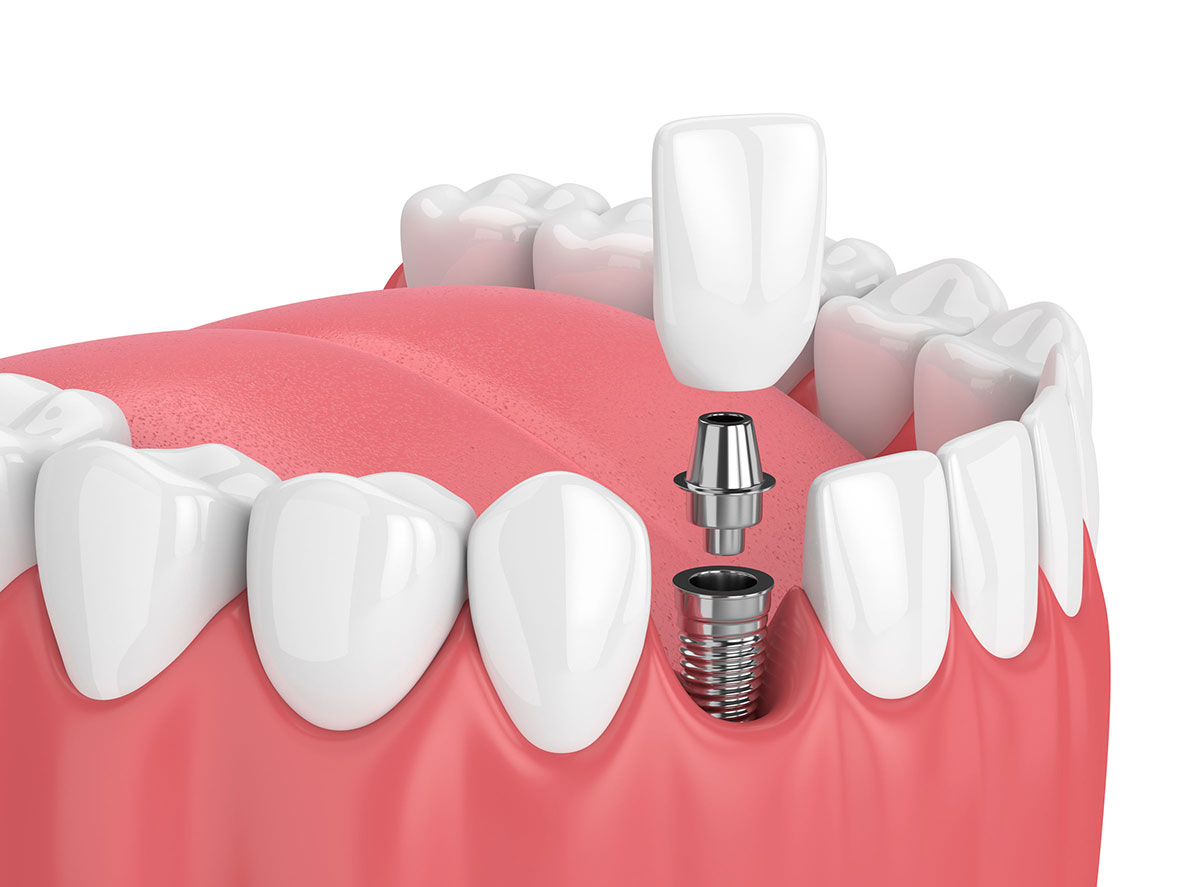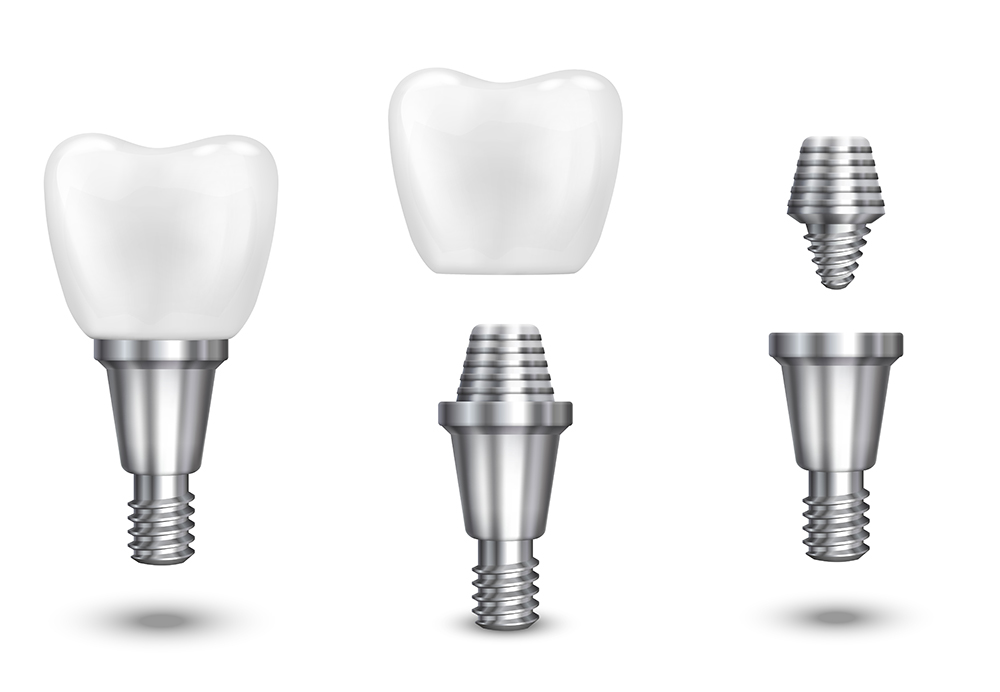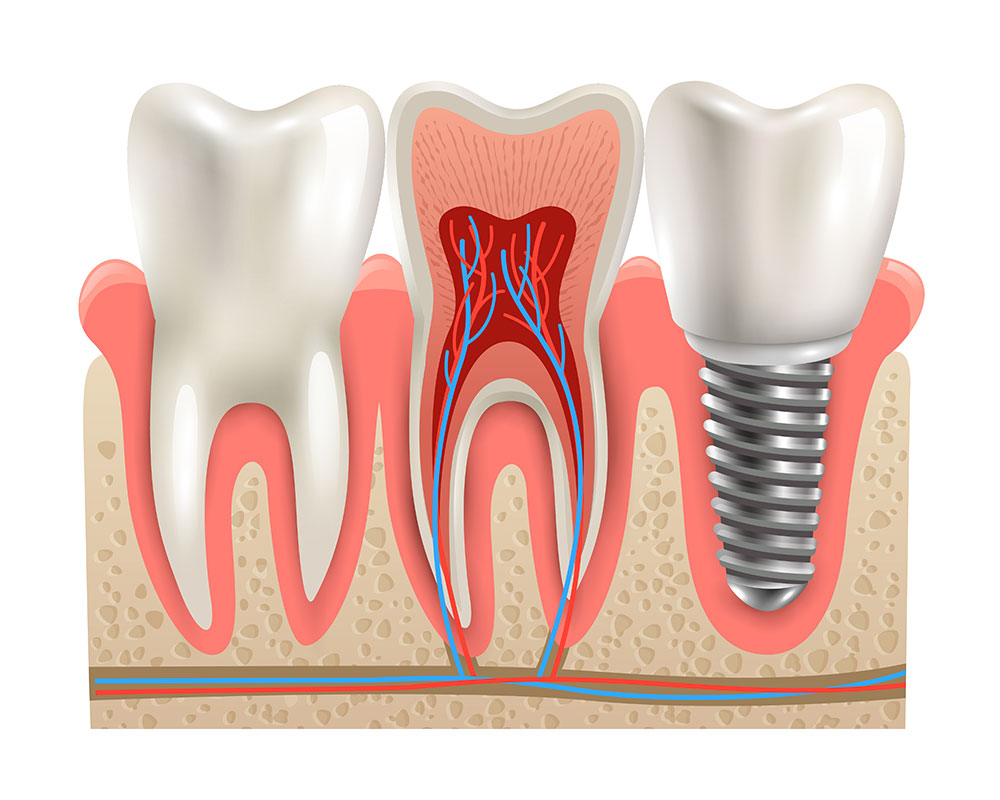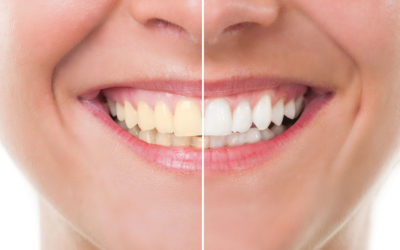
Dental implants in Switzerland: 5 key questions
Fixed and held in the jawbone, the dental implant is an artificial root intended for tooth replacement and crown placement. The implant is defined as a modern alternative to dentures and bridges. Who is dental implants in Switzerland for? How does it work? Discover 5 key questions to ask yourself before making an appointment.

1 - How is a dental implant placed?
The placement of the dental implant is done in an aseptic room, specifically dedicated to implantology. Most of the time, it takes place in three sessions spaced out from several weeks to several months.
In the first session, the procedure is performed under local anaesthetic and involves incising the gum to gain direct access to the bone. The dental surgeon makes a hole in the bone the size of the implant, then screws the implant into it and closes the gum.
In order for the implant to stabilise properly in the bone, it is necessary to allow time for "osseointegration" (the process that allows the bone and the implant to fuse together and become one). This osseointegration can take 2 to 4 months depending on the quality of the bone. It is said to leave the implant in "nurse".
Once this period has elapsed, the patient returns for the second session. After checking that the implant is osseointegrated, the surgeon will insert a healing screw.
The third step takes place a few weeks later, when the gums have healed. The healing screw is then removed. The implant is ready to receive its abutment and then its crown.
2 - What is the price of a dental implant in Switzerland?
The average price of a dental implant in Switzerland varies between CHF 1,500 and 2,000. The price of an implant varies according to the implant brand and the reputation of the dentist or dental clinic. In addition to this relatively high price, there's also the cost of a crown. A crown can also cost between CHF 1,000 and 1,500.
Center Dentaire Lancy charges market rates. We offer implant and crown placement for around CHF 3,200.
3 - What are the risks of a dental implant?
At Centre Dentaire Lancy, before considering the placement of dental implants, our implantologists and expert dentists will always take into account certain criteria prior to surgery.
Patients need to understand that several medical factors militate against implant placement and this type of dental care.
Diabetes and smoking are the most common. This does not mean that it is impossible to place dental implants in these patients, but that the risk of failure is higher in this case.
As dental implants are likely to be "used" quite often, it's imperative that the rest of the teeth and gums are stable. Decayed or broken teeth and diseased gums must be treated before dental implants are placed.
Also, the thinner the bone thickness, the more difficult it will be to place the implants and perform this type of dental care. The assessment of the volume of bone mass required for dental implant placement is usually done with a panoramic X-ray.
Contraindications to dental implant placement
- Poor general health
- Difficult wound healing
- Pregnancy
- Severe bruxism
- Patient too young
- Smoking, drug addiction, or severe alcoholism
- Serious pathologies
- Poor bone quality
- Other diseases (heart problems, diabetes or depression)
- Poor bone or gum condition
- Poor oral hygiene
- Insufficient bone volume
Potential risks of dental implant surgery
- Nerve damage (pain and numbness in the surrounding tissues)
- Dehiscence (this healing failure requires bone grafting)
- Excessive bleeding
- Hyperplasia
- Tissue necrosis (the cells in the tissue wing around the implant may disappear)
- Gingival recession (the gingiva next to the dental implant may recede)
In conclusion, the implant technique can sometimes present risks. But in general, success rates vary between 90% and 95% and the cases represented in the remaining percentages are mostly related to a bad evaluation of the pre-implant bone density, as well as to the patient's non-compliance with post-operative hygiene rules and pre-implant treatment.
Implant surgery is truly considered one of the safest and most controllable dental techniques. Local pain and inflammation are expected and normal.

4 - Is it painful to have a dental implant?
The level of pain varies from patient to patient. It also depends on the number of implants and their position in the dentition. Some people are also more tolerant of pain than others.
The level of anxiety can also have an influence. It is therefore essential to establish a quality and trusting dialogue with your dentist.
The operation is performed under local anaesthesia, just like a tooth extraction. Therefore, the placement of a dental implant is not painful. You will not feel anything during the procedure. However, after the implant is placed, you may feel some pain as a result of the operation. Your dentist will tell you what to do.
Possible pain after dental implant surgery
Unpleasant sensations: Feeling pain and discomfort is something that can happen after every operation. The dentist may prescribe painkillers to relieve you.
Bleeding: It is also quite normal for some rare and small amounts of bleeding to occur in the first 2-3 days after the procedure.
Swelling: in the area of the operation, you may notice swelling, which is a normal inflammatory reaction after an operation.
Haematomas: in the 72 hours following the operation, bruising may appear in the cheek, or even in the eye or neck.
Fever and temperature: A slight fever may be present and may be accompanied by swelling. This is a natural organic reaction following an operation of this type.
If these problems persist or if the pain becomes unbearable, contact your dental practice.
For implant placement under general anaesthesia, for example when there are many implants to be placed at the same time, the procedure takes place in a surgical unit. In this case, the patient is fully taken care of in terms of pain, stress and safety.
The healing time varies from person to person. Brush your teeth and maintain good dental hygiene to help reduce the risk of post-operative infection.

5 - How long does a dental implant last?
Dental implants are known to have a long or even unlimited life span.
Long-term clinical studies show that dental implants theoretically do not have a limited lifespan.
If your oral hygiene is respected and a regular professional follow-up is ensured, only a poor state of conservation of the bone can reduce the life of the implant.
If you would like more information on the subject or have any additional needs, please do not hesitate to contact the Centre Dentaire Lancy.
Discover also the Centre Dentaire Chêne-Bourg and the Centre Dentaire Champel





